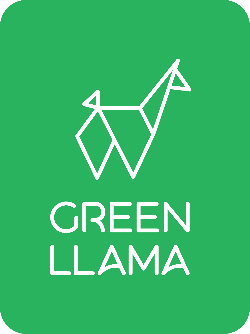The Ultimate Guide to DIY Natural Cleaning Recipes
by Kay Baker on Oct 09, 2025
Healthy Home DIY
The Ultimate Guide to DIY Natural Cleaning Recipes
Transparency note: Educational guide with practical safety guidance. Not medical or legal advice. Test in a small, hidden area first.
There’s something deeply satisfying about becoming a home alchemist—turning simple pantry staples into powerful, effective cleaners. The appeal is undeniable: you have complete control over every ingredient, you save money, and you dramatically reduce your reliance on single-use plastic. It’s a win for your wallet and the planet.
But let's be honest, the internet is filled with questionable concoctions and cleaning "hacks" that can be ineffective at best and damaging at worst. This is not that kind of guide. This is your trusted resource for tried-and-true DIY recipes that are both safe and surprisingly powerful. We’ll show you how to craft your own cleaners with confidence and get a sparkling result every time.
This journey is just one part of creating a healthier home. For a complete overview of the 'what, why, and how' of green cleaning, see our Ultimate Guide to Natural Cleaning Products.
The DIY Golden Rules (Safety First!)
Never mix certain ingredients. The most critical no-mixes are: bleach + ammonia (toxic chloramine gases), and bleach + vinegar (chlorine gas). Source: American Lung Association.
Label everything—clearly. Mark reusable bottles with contents and date made.
Know your surfaces. Avoid vinegar on natural stone (marble, granite, travertine). It can etch/dull. Spot test first.
Cleaning ≠ Disinfecting. Cleaning removes. Disinfecting kills. Most DIY formulas are for cleaning—not hospital-grade disinfection. For disinfection, use an EPA-registered product and follow the label contact time (CDC/EPA).
Hydrogen peroxide note: 3% H2O2 is used as an active in some EPA-registered disinfectants, but at home treat it primarily as a stain remover/oxidizer unless using a labeled, registered product.
Building Your DIY Toolkit: The Fab 5
- Distilled White Vinegar: Cuts grease, dissolves mineral deposits.
- Baking Soda (Sodium Bicarbonate): Gentle abrasive and natural deodorizer.
- Castile Soap: Concentrated, plant-based soap for all-purpose cleaning.
- Hydrogen Peroxide (3%): Oxidizer for stains; see note above for disinfection.
- Essential Oils: Lemon, tea tree, lavender, peppermint can add scent and some antimicrobial activity (literature varies). Pet Safety: Use cautiously around pets—some oils (tea tree, citrus) may be toxic if ingested or applied to skin (ASPCA).
Your Recipe Book: 7 Tried-and-True DIY Formulas
Tip: Use distilled water to minimize spots and keep formulas stable.
1) The Do-It-All All-Purpose Spray
Best for: Countertops (not unsealed stone), shelves, general wiping.
Ingredients
1 part distilled white vinegar
1 part distilled water
(Optional) 10–15 drops lemon essential oil
Instructions
Combine in a clean spray bottle and shake gently.
Pro Tip: For grease, use a separate soap-based version: 1 tsp Castile soap in 2 cups water (do not add vinegar to soap).
2) The Streak-Free Glass & Mirror Cleaner
Best for: Windows, mirrors, stainless fixtures.
Ingredients
1 part distilled white vinegar
2 parts distilled water
A few drops rubbing alcohol
Instructions
Mix in a spray bottle. Spray and wipe with a microfiber cloth.
3) The Grime-Busting Soft Scrub
Best for: Sinks, bathtubs, tile grout.
Ingredients
1/2 cup baking soda
2–3 Tbsp liquid Castile soap
1 Tbsp water
Instructions
Mix to a thick paste, apply with sponge/brush, scrub, rinse well.
4) The Refreshing Toilet Bowl Cleaner
Best for: Weekly deodorizing and clean.
Ingredients
1/2 cup baking soda
1/4 cup distilled white vinegar
10 drops tea tree or peppermint oil
Instructions
Sprinkle baking soda; drizzle vinegar (fizz). Wait 15 minutes, add oil, scrub, flush.
5) The Nourishing Wood Polish
Best for: Sealed wood furniture/cabinets.
Ingredients
1/4 cup olive oil
2 Tbsp vinegar or lemon juice
Instructions
Mix in a jar. Apply a small amount with a soft cloth. Buff dry. Use sparingly.
6) The Simple Mopping Solution (Choose A or B)
Best for: Tile, vinyl, linoleum. Avoid vinegar on natural stone.
Option A (vinegar-based)
1 gallon warm water + 1/4 cup vinegar
Option B (soap-based)
1 gallon warm water + 1 Tbsp Castile soap
Instructions
Pick A or B—do not mix vinegar and soap. Mop and let air dry.
7) The Garbage Disposal Refresher
Best for: Deodorizing and cleaning your sink disposal.
Ingredients
Citrus peels (handful)
1/2 cup ice cubes
1/4 cup rock salt
Instructions
Add peels and ice; pour salt. Run cold water; turn on disposal 10–15 seconds.
When DIY Isn’t the Answer
We love a good DIY project, but life gets busy. Sometimes you want guaranteed performance with zero mixing. That’s why we created Green Llama: concentrated refill tablets that deliver a balanced, powerful clean—fast.
Try the All-Purpose Starter Kit
Frequently Asked Questions
How long do DIY cleaners last?
Because they lack strong preservatives, make small batches. Vinegar + water mixes can last a few months. Soap + water mixes are best used within 2–4 weeks.
Can I use apple cider vinegar?
You can, but it’s less acidic and contains sugars that can leave residue or attract pests. Distilled white vinegar is cheaper and more effective for cleaning.
Why isn’t my DIY glass cleaner working?
Most streaks come from minerals in tap water or using paper towels. Use distilled water and a microfiber cloth.
Trust & Reader Support
- 24-hour correction pledge: If you spot an error, we’ll review and update this article within 24 hours.
- Contact CX: hello@greenllamaclean.com
References (reader friendly)
- American Lung Association — Cleaning and chemical safety basics (bleach + ammonia/vinegar = dangerous gases).
- CDC/EPA — Difference between cleaning, sanitizing, disinfecting; List N; contact time and label use.
- ASPCA — Essential oils and pet safety guidance.
- Industry guidance — Natural stone sensitivity to acids like vinegar.
- Peer-reviewed literature — Variable antimicrobial activity of essential oils (contextual only; not a disinfectant claim).





